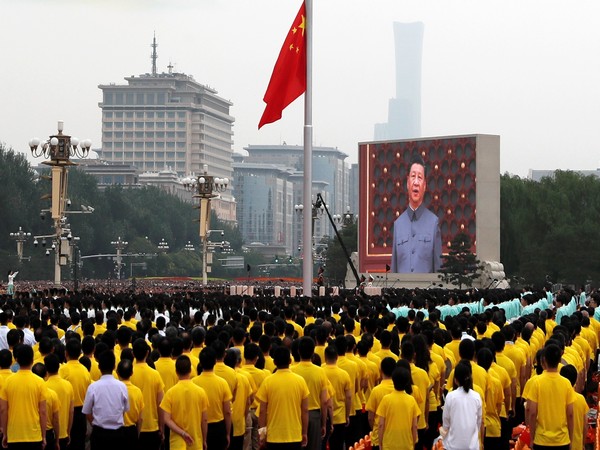China sharpens attack on West's version of democracy ahead of Xi's third term
China has sharpened its line of attack on the West's version of democracy ahead of President Xi Jinping's crowning achievement at the National Party Congress this October - the third term in office - a feat not achieved since the death of Chairman Mao Zedong in 1976.

- Country:
- China
China has sharpened its line of attack on the West's version of democracy ahead of President Xi Jinping's crowning achievement at the National Party Congress this October - the third term in office - a feat not achieved since the death of Chairman Mao Zedong in 1976. Chinese theorists, ministers and spin doctors came together to set out their plans for a new era of government - one they hoped would allow the Chinese Communist Party to remain in power forever while giving it the international respect it craves, reported The Sydney Morning Herald (SMH)
They were annoyed at the optics of China being snubbed from US President Joe Biden's Summit for Democracy, had grown frustrated at China's economic power not being matched by its diplomatic clout, and were anxious to avoid the endless cycle of rising and fall that has bedevilled China's empires for millennia. In meetings in the capital, the officials at the State Council Office sharpened their line of attack on the West's version of democracy. They argued it was full of selfish politicians, broken campaign promises and fragmented societies, reported SMH.
"There is nothing wrong with democracy per se," the advisers offered bluntly in a 50-page white paper. "Some countries have encountered setbacks and crises in their quest for democracy only because their approach was wrong." "Democracy with Chinese characteristics," they said, could unite countries behind their long-term economic goals and guarantee stability.
The launch of the white paper in December was a brash affair. Fronted by Guo Zhenhua, the deputy secretary general of the Standing Committee of the National People's Congress and Xu Lin, the minister of the State Council Information Office, it was largely dismissed by the West because of its colourful language, contradictions and propaganda, reported SMH. But between metaphors, the white paper contained a plan not just for China's future, but the push to export China's model and burnish Xi's legacy as he becomes the most powerful leader since Mao.
"China did not duplicate Western models of democracy, but created its own," the State Council said. "It all boils down to whether the people can enjoy a good life." They argued what defined democracy was not whether one person had one vote, but whether the government fulfilled promises and enforced the rule of law.
"There is no fixed model of democracy," the State Council said. "Whether a country is democratic should be acknowledged by the international community, not arbitrarily decided by a few self-appointed judges," referring to American-led multilateral groups such as the Quad, Five Eyes and the G7, reported SMH. The advisers acknowledged that in China's version of democracy there were no opposition parties, but argued that "China's political party system is not a system of one-party rule".
Moreover, Xi now has unparalleled power at home. Chinese media reports suggest the 69-year-old is likely to be named as either the People's Leader or Chairman at the National Party Congress on October 16. But he faces trouble overseas, where China's growing aggression towards Taiwan, bellicose diplomatic rhetoric and COVID-19 response have isolated it from advanced economies. China's push to rebrand democracy is part of its global outreach campaign to developing countries that feel isolated by the West. (ANI)
(This story has not been edited by Devdiscourse staff and is auto-generated from a syndicated feed.)
ALSO READ
Congress Introduces Strategic Reserve to Combat Chinese Mineral Dominance
High Stakes: Karti Chidambaram's Legal Battle Over Chinese Visa Scandal
Supreme Court Stays FIRs Against ED in West Bengal Political Drama
BJP Spokesperson Raises Alarm Over West Bengal Demographic Changes
Clash Over ED Raids: A Political Tug-of-War in West Bengal










